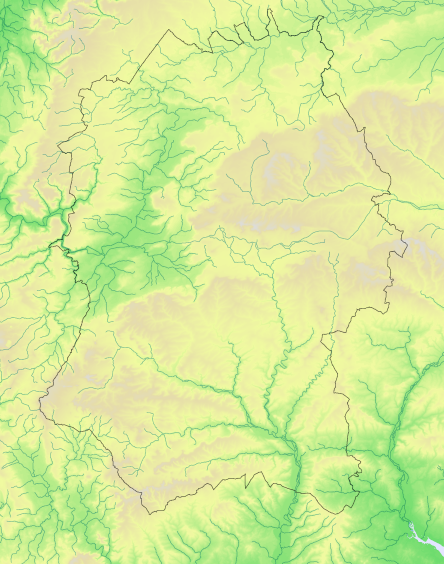Blackcap Sylvia atricapilla
Winter abundance change
Common summer visitor and scarce winter visitor, winters west Europe/north Africa
Atlas species lists
- Breeding distribution 1995–2000
- Summer abundance 1995–2000
- Winter distribution 1995–2000
- Winter abundance 1995–2000
- Breeding distribution 2007–2012
- Summer abundance 2007–2012
- Winter distribution 2007–2012
- Winter abundance 2007–2012
- Breeding distribution change
- Summer abundance change
- Winter distribution change
- Winter abundance change
More Blackcap maps
- Breeding distribution 1995–2000
- Summer abundance 1995–2000
- Winter distribution 1995–2000
- Winter abundance 1995–2000
- Breeding distribution 2007–2012
- Summer abundance 2007–2012
- Winter distribution 2007–2012
- Winter abundance 2007–2012
- Breeding distribution change
- Summer abundance change
- Winter distribution change
- Winter abundance change
More maps for this atlas
Map explanation
This map shows the changes which occurred in the winter relative abundance of the species between 1995-2000 and 2007-2012, but only in the limited selection of tetrads that were surveyed in winter for Birds of Wiltshire (Wiltshire Ornithological Society 2007).
Key
Relative to average
Nos tetrads

More abundant
25
6%

Equally abundant
0
0%

Less abundant
7
2%

Not surveyed in both periods
Blackcaps breed from the Atlantic Islands, right across Europe (except Iceland and northern areas of Fenno-Scania and Russia) into west Siberia. They also breed in northwest Africa, northern Turkey and the Caucasus and Iran. Some winter in the British Isles and west and central France though most move further south, to the Mediterranean region and sub-Saharan Africa. Ringing evidence shows that Blackcaps breeding in Britain mostly migrate in winter to Iberia and northwest Africa while the increasing numbers seen in Britain in winter are migrants from west-central Europe.
In the breeding season they are are found almost everywhere throughout Britain, absent only from some upland areas in Scotland and northern England. Bird Atlas 2007-2011 recorded a 25% increase in distribution, mostly in Scotland, since the 1968-72 Breeding Atlas and a 102% increase in abundance between 1995 and 2010.
In Wiltshire Blackcaps have been regarded as a common breeding species at least since the mid 19th century. Birds of Wiltshire noted their presence in 805 tetradss, with breeding in 546. WTA2 recorded them in 858 tetrads though the number in which they were found to be breeding had fallen to 498.
The first recorded winter sighting of a Blackcap in Wiltshire came in 1891, though it was over half a century before the next sighting, one of 15 reported in the course of the winters between 1945 and 1954. Thereafter numbers gradually built up until Jauuary 2012 when 173 birds were recorded spread around 59 sites.
References
The following references are used throughout these species’ accounts, in the abbreviated form given in quotation marks:
“1968-72 Breeding Atlas” – Sharrack, J.T.R. 1976: The Atlas of Breeding Birds in Britain and Ireland. T. & A. Poyser
“1981-84 Winter Atlas” – Lack, P.C. 1986: The Atlas of Wintering Birds in Britain and Ireland. T. & A. Poyser
“1988-91 Breeding Atlas” – Gibbons, D.W., Reid, J.B. & Chapman, R.A. 1993: The New Atlas of Breeding Birds in Britain and Ireland 1988-91. T. & A. Poyser
“Birds of Wiltshire” – Ferguson-Lees, I.J. et al. 2007: Birds of Wiltshire, published by the tetrad atlas group of the Wiltshire Ornithological Society after mapping fieldwork 1995-2000. Wiltshire Ornithological Society.
“Bird Atlas 2007-2011”-– Balmer, D.E., Gillings, S., Caffrey, B.J., Swann, R.L., Downie, I.S. and Fuller, R.J. 2013: The Breeding and Wintering Birds of Britain and Ireland. BTO Books.
“WTA2” – ("Wiltshire Tetrad Atlas 2 ") the present electronic publication, bringing together the Wiltshire data from “Birds of Wiltshire” and “Bird Atlas 2007-11”, together with data from further fieldwork carried out in 2011 and 2012.
"Hobby" - the annual bird report of the Wiltshire Ornithological Society.

